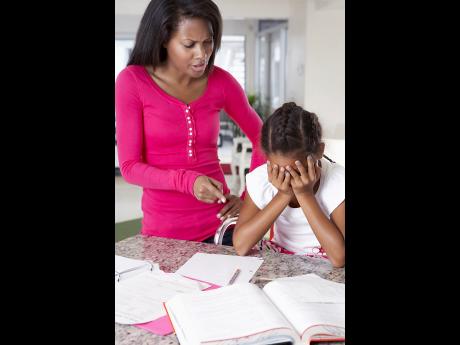Dealing with sassy children - It's no joking matter
Train up a child in the way he should go, and when he is old, he will not depart from it. - Proverbs 22:6
There are countless videos on social media of children being lippy, talking back to parents, and even going as far as throwing blows at their parents, with parents and other adults in the background laughing, finding amusement in the whole thing.
Unfortunately, a lot of adults fail to see the importance of not allowing these types of behaviours to go unchecked.
Commenting on the issue, Dr Patrece Charles of the Phoenix Counselling Centre said sassy replies are a serious problem. She said if left unchecked, disrespectful children will turn into rude adults.
"All children are sassy at one time or another. As toddlers, they often talk back in an effort to test limits and gain independence. However, responding to toddlers is not usually hard for a parent to do," she points out.
Dr Charles shared with Family and Religion that as the child ages, there should be fewer excuses for sass, although nearly all children go through mouthy phases at one time or another.
"While you want to pick your battles, this rude behaviour should not be tolerated," are the words of warning from Dr Charles.
Sharing that part of a child's mouthiness is an attempt to gain a little bit of power in the parent-child relationship, she said if parents respond in an irritated manner, they will be giving their child's words strength.
Dr Charles said parents should, however, take back the power that belongs to them.
"When you tell your child to complete a task, and she responds, 'Do it yourself', don't allow that to stand. Be clear: "I instructed you to do it, and I expect you to do it as I asked."
Charles also pointed out that parents should avoid getting into a power struggle by arguing with their children. She said instead of a lengthy debate, parents should simply enforce consequences if their child is not compliant.
Dr Charles said there are ways parents can correct children without "killing their spirits or spontaneity". Some of the methods she shared are deactivating their comments with a neutral phrase and that's done by responding to their sass with words that show your child that you heard what he/she said, but you're not going to react - and cutting back on television as sometimes the sass can be them mimicking sassy characters on TV.
"They'll pick up words and phrases from shows (either their own favourites or even one of yours) and say them back to you without truly understanding their meaning. When you discover characters using sassy comebacks, talk to your child about why saying those things is inappropriate. Say something like, "That was a rude thing to say, and it might hurt someone's feelings. What could he have said instead that would be nicer?"
WARNING AND REMINDERS
Another way to administer correction, said Charles, is to provide a single warning.
She said children sometimes need a reminder that sarcastic responses aren't appropriate. So whether your child says, "Mom, you're such a loser," or mumbles "whatever" under his breath, address it.
"It's especially important to address your child's sassy comments if he's showing off in front of guests or if he's trying to look cool in front of his friends. Make it clear that you aren't going to tolerate that type of disrespect, and tell him what will happen if he does it again," said Charles.
Parents, she advised, should always follow through on consequences if the child's sass doesn't stop after a warning.
"Appropriate consequences might include timeout or loss of privileges. Make sure the consequence is time-sensitive. Telling your child you're going to take away his trip to the movies next week isn't likely to be effective. Find something that will work right now so he'll think twice about being disrespectful next time."


